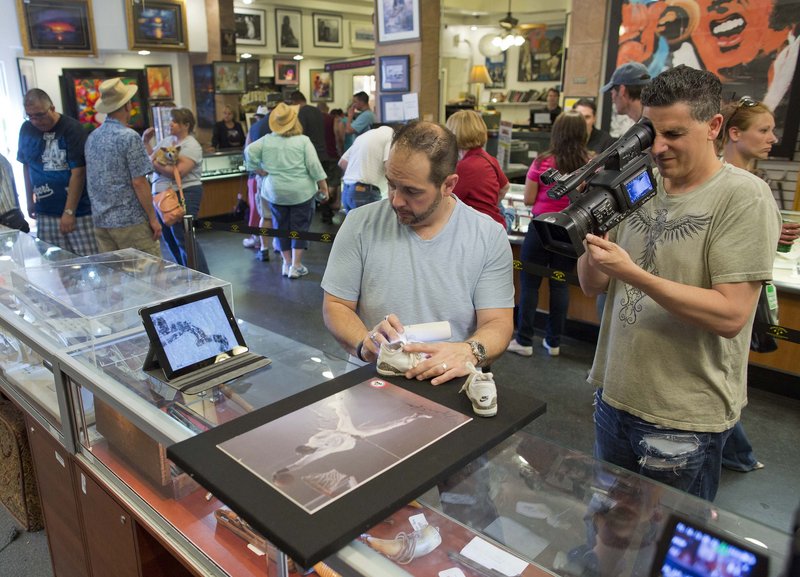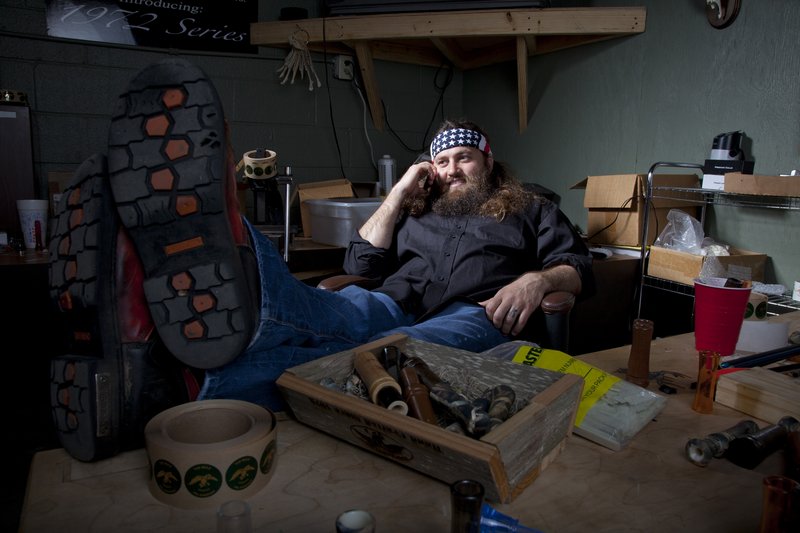There’s no business like small business.
Mix the high stakes of running a small business with a dash of family drama and throw in a camera crew and you get hit reality television shows such as “Pawn Stars,” “Welcome to Sweetie Pie’s” and “Duck Dynasty.”
Turning small-business owners into stars has become a winning formula for television producers, but some businesses featured in them are cashing in, too. Sales explode after just a few episodes air, transforming these nearly unknown small businesses into household names.
In addition to earning a salary from starring in the shows, some small-business owners are benefiting from opening gift shops that sell souvenirs or getting involved in other ventures spawned by their new-found fame.
Sales at Gold & Silver Pawn Shop in Las Vegas are five times higher than they were before “Pawn Stars” first aired in 2009. More people are pouring into the St. Louis restaurant featured in “Welcome to Sweetie Pie’s” to eat its jumbo-sized fried chicken wings and six-cheese macaroni and cheese. And Duck Commander, seen in “Duck Dynasty,” is having trouble controlling the crowds in front of its headquarters in the small city of West Monroe, La.
“Sometimes it’s hard getting from the truck to the front door,” said Willie Robertson, who owns Duck Commander with his father and stars in the A&E series with his extended family.
It’s a big change for a company that sells duck calls out of a warehouse on a dry, dead-end country road. Duck hunters use the whistles, which mimic duck sounds, to attract their prey.
Since “Duck Dynasty” began airing in March 2012, Robertson finds at least 70 people waiting in front of the warehouse every morning asking for autographs and photos. Neighbors have complained about the mobs and the police have been called.
Despite the trouble, the show has been good for the family business. Sales of the company’s duck calls, which range from $20 to $175, have skyrocketed. In 2011, the company sold 60,000 duck calls. In 2012, the year the show began airing, the company sold 300,000. “We saw a big difference as the Nielsen ratings went up,” Robertson said.
Cameras follow Robertson and his family as they make duck calls, hunt or go camping. One episode showed Robertson trying to prove to his dad, brother and uncle that he could spend a night in a tent during a camping trip. (Robertson ends up bringing a big recreational vehicle and is ridiculed for it.)
Duck Commander hired five people to keep up with rising sales. Every duck call has to be put together by hand.
“It’s like a musical instrument,” Robertson said. “Each one needs to be blown into it to make sure it works.”
To stop the crowds from disrupting business, and to make extra cash, Robertson opened a gift shop inside the Duck Commander warehouse. “It keeps the people out of my lobby,” Robertson said. The shop sells duck calls, Duck Commander T-shirts and bobblehead dolls that look like Robertson, his dad, uncle and brother, complete with their long beards.
Rick Harrison, the star of “Pawn Stars,” opened a gift shop, too. He sells mugs, T-shirts, bobbleheads and refrigerator magnets, in the back of his Las Vegas pawn store.
Harrison said the souvenirs bring in about $5 million in revenue a year. The pawn business brings in about $20 million a year, up from the $4 million before “Pawn Stars” aired.
The show, which follows people as they try to sell or pawn items ranging from gold coins to classic cars, also stars Harrison’s son, his father and an employee named Austin “Chumlee” Russell.
People have been lining up outside the pawn shop since the reality show began airing on History in 2009.
Fame has disadvantages. Harrison said he wears a hat and sunglasses to disguise himself, even on visits to IHOP for pancakes with his kids.
“It amazes me,” Harrison said. “I’m just a fat, middle-aged, bald guy, but people still want to meet me.”
The shows are essentially a free weekly national commercial for a small business.
“There’s no better way to increase exposure,” said Jai Manselle, the founder of Manselle Media, a brand development and public relations company that has clients in the entertainment industry.
Manselle said entrepreneurs considering reality TV should make sure the show will portray the business in a positive light.
“If the show makes you look unprofessional, that may not be good,” he said. Manselle turned down an offer to turn his marketing business into a reality show last year because it didn’t feel right, but he is still open to the idea.
“If it’s not going to benefit the brand, don’t do it,” Manselle said. “The whole reason you’re doing this is to make money.”
Send questions/comments to the editors.




Success. Please wait for the page to reload. If the page does not reload within 5 seconds, please refresh the page.
Enter your email and password to access comments.
Hi, to comment on stories you must . This profile is in addition to your subscription and website login.
Already have a commenting profile? .
Invalid username/password.
Please check your email to confirm and complete your registration.
Only subscribers are eligible to post comments. Please subscribe or login first for digital access. Here’s why.
Use the form below to reset your password. When you've submitted your account email, we will send an email with a reset code.